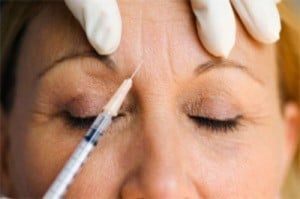Consult a trusted dermatologist to address your skin concerns.
Consult a trusted dermatologist to address your skin concerns.
Blog Article
Navigating Skin Cancer Cells Therapy: The Important Duty of Mohs in Modern Dermatology Practices
Skin cancer, a difficult diagnosis, often leaves people grappling with numerous therapy options. Among these, Mohs surgical procedure stands as a beacon in modern dermatology, renowned for its meticulous approach to cancer elimination and preservation of surrounding healthy and balanced tissue. This cutting-edge practice guarantees not only premium cosmetic end results but also offers instant results, easing client stress and anxiety. As we discover the intricacies of this treatment, one will certainly value its pivotal duty in skin cancer treatment.
Comprehending Skin Cancer Cells: Types and Dangers
Skin cancer cells, a potentially life-threatening malady, is much more prevalent than many individuals understand. This illness, brought on by the uncontrolled development of unusual skin cells, largely arises from DNA damages due to direct exposure to the sun and ultraviolet (UV) light. There are 3 primary kinds of skin cancer cells: Basal cell carcinoma, Squamous cell carcinoma, and Melanoma. While the former 2 are much less lethal and make up the bulk of detected instances, melanoma is the most unsafe. It makes up just concerning 1% of skin cancer cases however triggers the vast bulk of skin cancer deaths - skin cancer. Risk elements consist of fair skin, history of sunburn, excessive sun direct exposure, living at high altitudes or near to the equator, having several moles, a family members background of skin cancer, and weakened body immune system.
What Is Mohs Surgical treatment and Exactly How It's Transforming Skin Cancer Therapy
In spite of the numerous therapies presently readily available for skin cancer, Mohs surgical procedure stands out as a groundbreaking and extremely effective solution. Named after Frederic E. Mohs, the doctor that created the procedure, Mohs surgical treatment is a specific medical strategy made use of to treat skin cancer. During the procedure, thin layers of cancer-containing skin are considerably removed and analyzed until just cancer-free cells continues to be. This approach enables the specialist to confirm that all cancer cells have actually been over here removed at the time of surgical treatment. This degree of precision, incorporated with the capacity to save as much healthy and balanced tissue as feasible, is changing skin cancer treatment. Consequently, Mohs surgery has actually come to be a foundation of modern dermatology practices.
The Advantages of Mohs Surgical Procedure Over Standard Skin Cancer Treatments
Building on the ingenious nature of Mohs surgery, click for more it's vital to consider its many benefits over conventional skin cancer cells treatments. Unlike conventional treatments, Mohs uses a higher remedy rate, typically reaching 99% for newbie therapies and 94% for frequent cancers. This precision is because of its one-of-a-kind strategy of considerably eliminating and analyzing tissue layers until only cancer-free cells continue to be (dermatologist). Additionally, it decreases damages to healthy and balanced skin, bring about less scarring and enhanced cosmetic results. Mohs likewise supplies immediate results, removing the anxiety-ridden wait typical with other home approaches. It's cost-effective, as the surgery and microscopic assessment occur simultaneously, getting rid of the demand for extra lab services. Therefore, Mohs represents a substantial advancement in skin-related methods.
The Treatment of Mohs Surgical Procedure: What to Anticipate Throughout the Process

Possible Side Impacts and Post-Operative Treatment of Mohs Surgical Treatment
Undertaking Mohs surgery, like any kind of various other operation, includes prospective negative effects that people ought to understand. Common negative effects include discomfort, bruising, and swelling at the surgery website. These are usually momentary and manageable with non-prescription discomfort medicine and ice packs. In rare instances, individuals might experience infection, blood loss, or an allergy to the anesthetic. Post-operative care is essential to recovery and decreasing side impacts. This generally involves maintaining the wound clean and dry, taking proposed medications, and avoiding exhausting tasks. Clients ought to additionally participate in all follow-up visits for injury care and surveillance. In some cases, extra treatments might be essential to make certain full removal of the cancerous cells. Complying with these post-operative care guidelines can considerably boost recovery and outcomes.
Verdict

Report this page